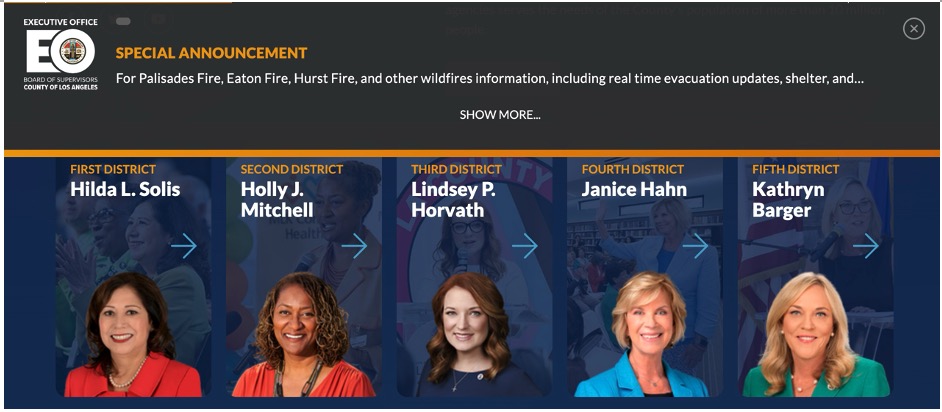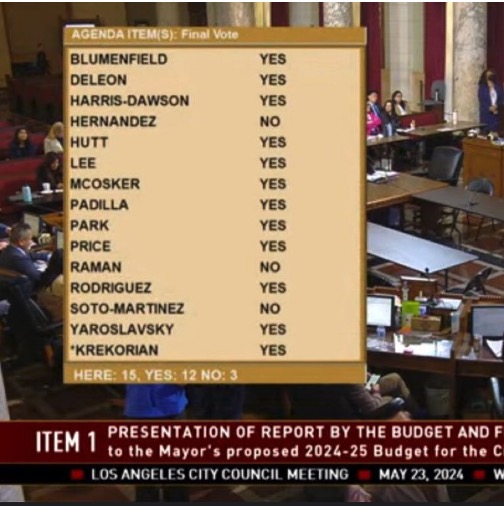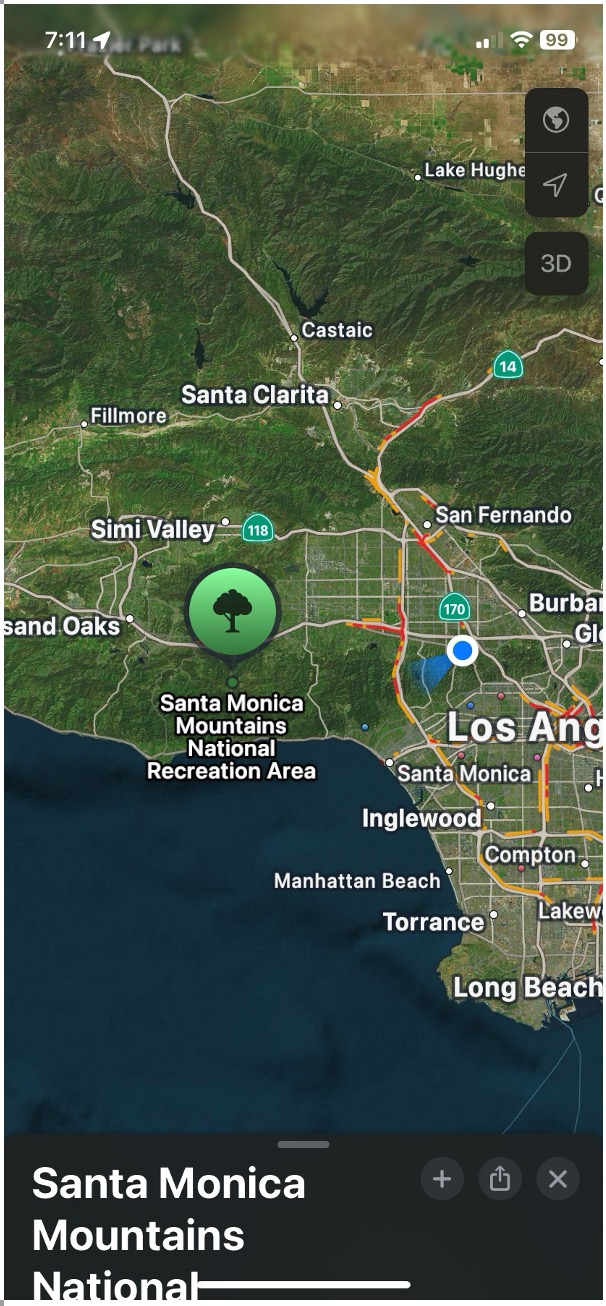Comments
ERIC PREVEN'S NOTEBOOK - The Knabe Cup rolls on, funneling public dollars into corporate coffers under the guise of community benefit. Private equity mogul Wes Edens—yes, who, through his Fortress Investment vehicle, snapped up the county’s best courses—is poised to oversee a $17 million "redo" of Maggie Hathaway Golf Course. And it’s all in-house, meaning American Golf Guys (AGG) manages everything—from design to bids—while banking a fortune.
Supervisor Holly Mitchell, it’s time to study these players. Under AGG’s lease, they’ll solicit three "competitive" bids, enforce wage compliance, and wrap it all in a shiny bow of oversight. Generous? Maybe. Transparent? Hardly.
FORE Youth’s $7 million donation is a feel-good distraction from Phase 1’s $10.2 million splurge, with upgrades and sustainability buzzwords to dazzle the Board of Supervisors. Phase 2 promises a $7 million clubhouse and community space, but the real winner is AGG, reaping the rewards while taxpayers foot the bill.
This isn’t about golf; it’s about a pipeline of fat contracts for corporate players. If this is what equity looks like, someone needs to check the scoreboard—because public dollars are being played like a rigged game.

The Supes are smiling and "may" start the meeting at ten am on Tuesday. Please stop smiling. Thx.
CD4 Dispatcher: Sportsmen’s Lodge—A Missed Opportunity?
The Sportsmen’s Lodge, a recipient of $400,000 from Project Roomkey, sits idle while Palisades and Altadena fire victims need shelter. Lawsuits have stalled redevelopment, leaving dozens of rooms unusable—so where did the money go?
A resident asked CD4 to explore temporary solutions, like housing displaced families or even using the space for lost pets with help from animal advocates. Raman’s office replied that the building is "not in habitable condition," though it’s unclear whether that’s due to safety concerns or neglect.
So, did Midwood just pocket the cash meant for repairs? We’ll find out soon enough, but for now, it’s another glaring example of public funds failing to meet public needs.

Traci Park is among the team that voted to cut the Fire Department Budget.
City Hall without the public...
One sharp resident pointed out the absurdity of blocking virtual testimony, calling it potentially illegal and harmful to people with disabilities—a cruel irony in a city notorious for being sued over dangerous, neglected conditions.
Meanwhile, Katy Yaroslavsky and Tim McOsker slipped through a motion to explore revenue grabs like revising the Transient Occupancy Tax (TOT), all under the guise of preparing for the 2028 Olympics. The timing couldn’t be worse, as the city’s fiscal mismanagement burns hotter than ever.
Let’s be clear: this isn’t about fixing infrastructure or helping residents. It’s about covering liabilities and catering to corporate sponsors and tourism dollars. Angelenos are left footing the bill while the Council congratulates itself for "forward-thinking" fiscal moves.
If half this energy went into real community progress, maybe residents wouldn’t feel like cash cows milked dry to patch decades of incompetence. Let’s call it what it is: a shameless cash grab dressed as "future preparation."
Priorities: The Olympics
While wildfires devastate Southern California and Angelenos struggle to rebuild, Traci Park (CD11) talks about "getting back on track" for the 2026 World Cup. Seriously? With housing scarce and recovery efforts ongoing, it’s a tone-deaf distraction.
Gov. Gavin Newsom’s fast-tracking reconstruction is a step forward, but LA’s priorities remain skewed. Hosting the 2028 Olympics with a $7 billion budget—and taxpayers on the hook for overruns—raises tough questions. Paris ended its Games with a $28 million surplus; can LA pull that off, or are we headed for financial disaster?
The irony stings: venues like UCLA’s Olympic Village and Riviera Country Club sit near fire-ravaged areas. What happens if we’re not ready? Relocation? A backup plan? Angelenos deserve answers before global prestige becomes yet another local burden.
California Cash Cow
Los Angeles is facing disaster, yet instead of sympathy, California gets scapegoated—as if it "brought this on itself." Let’s set the record straight: the Santa Monica Mountains, where the Palisades fire rages, is federally managed land—not California’s responsibility. Blaming the state reveals ignorance or misdirection.

Santa Monica Mountains National Recreation Area.
California pays far more in federal taxes than it gets back, subsidizing states that now offer blame instead of aid. If the U.S. can’t support all its states equally, we’ve lost the meaning of “united.” California drives America’s economy, culture, and innovation—it's time it’s treated as the vital asset it is.
Unintended Consequences
Meghan, Duchess of Sussex, has delayed her Netflix series With Love, Meghan to prioritize wildfire victims. Originally set to premiere Wednesday, the show—filmed in Montecito and showcasing Southern California’s beauty—will now debut March 4. Meghan and Prince Harry recently visited survivors and emergency workers near the Eaton fire, which has burned over 13,000 acres.
The wildfires have claimed at least 24 lives, displaced thousands, and devastated neighborhoods. One local resident blamed New Year’s Eve fireworks, another told a Washington Post reporter that the whole wildfire was “started by idiots.”
Item 55
The Discovery Science Center of Los Angeles (DCLA) and LASAN propose extending their MOU to 2027, with funding increased to $7.2 million—up $1.8 million. Once located in Council District 12 (John Lee), redistricting moved the Cube to District 7 as of December 2021.
While the Cube’s mission to inspire kids’ love of science is laudable, questions remain about LASAN’s funding, especially given Councilmember Bob Blumenfield’s recusals [how many is it, Johnny?] tied to his wife’s leadership role. LASAN funding supports:
- Curriculum development at Environmental Learning Centers.
- Teacher workshops with LAUSD.
- Environmental career programs for children.
- Hazardous waste events and fairs.
- Outreach for events like Earth Day.
- Other services as agreed.
Bottoms Up: Liquor, Liability, and Lip Service
Beneath a stack of building and safety liens—not innocuous agenda items—we find yet another round of liquor permits. Blumenfield in CD3 backs off-site alcohol sales for Follow Your Heart, while Rodriguez in CD7 greenlights Lorenza’s Meat Market. Public convenience or necessity? Neither. These permits cater to profits, not community needs.
What about Vision Zero? The city’s commitment to end traffic deaths has been drowned out by the steady flow of liquor licenses. Expedited alcohol permits mean more road hazards, rising liability payouts, and a disregard for neighborhoods already struggling with safety challenges.
Is this about building thriving communities or just lining pockets at public expense?
Cultural Historical Tax Break
Hutt tees it up: Chateau La Martine at 627 South Normandie gets its historic-cultural monument nod. Owned by Universal Investments LLC and backed by applicant James Dastoli, it breezes through as CEQA-exempt.
The CHC does its homework, but let’s not ignore the larger play. Historic designation isn’t just preservation—it’s a strategic move unlocking tax breaks, development perks, and public funds.
This lineup of items reveals the usual suspects: confusion, complexity, and the insider advantage. Let’s not kid ourselves—streamlining processes or clarifying priorities isn’t a feature of these reports; it’s a bug insiders rely on to keep the public out of the loop.
Item 20: Reappointing Delfino De La Cruz to HACLA through 2028 without any financial disclosure or public input. Does transparency mean nothing when insiders circle their wagons?
Item 21: Speed humps around schools sound great, but 1,164 sites and a $1.2M budget still leave the public guessing. Which schools? How were they prioritized?
Item 22: A citywide equity framework for transportation that asks for reports and more data, but where’s the action? Will it address actual gaps or just tick bureaucratic boxes?
Item 23: Electrifying the LADOT fleet with outside funding—fantastic. But will it truly replace Proposition A shortfalls, or just cover a fraction of what’s needed?
Item 24: A youth program evaluation framework to measure participation? Necessary, but it’s telling that the fiscal impact is conveniently “not analyzed.”
Item 25: Adjusting oil well bonds and penalties after years of neglect is crucial. But where’s the urgency to plug wells sitting idle for over a year?
Item 26: No-cost licenses for LAPD’s virtual reality program. Fine, but where’s the evidence this is worth expanding when other city departments are hemorrhaging funds?
Item 27: A "Budget Reduction Exercise" may sound prudent, but we all know it’s a euphemism for cuts in services while insiders secure contracts and settlements quietly grow.
These are routine items designed to glide through council chambers without a second glance. But let’s remember, insiders benefit from the confusion they create.
(Eric Preven is a longtime community activist and is a contributor to CityWatch.)












